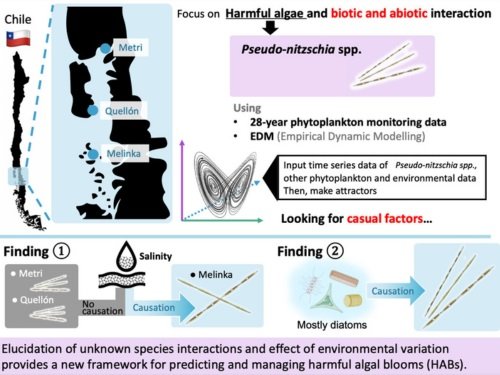Daejeon, Korea.- The Electronics and Telecommunications Research Institute (ETRI) has developed a technology for analyzing water quality with drones and using artificial intelligence (AI) to predict the level of algal bloom. The technology is expected to reduce public anxiety about algal blooms that reoccur each summer and help manage drinking water safety.
ETRI reported it successfully measured and predicted harmful algal blooms (HABs) in a remote lake with a hyperspectral camera built in a drone. The research was published in the journal Remote Sensing of Environment.
Prediction of algal bloom expansion with AI analysis
Algal blooms have been observed in many rivers and coastal waters where water flow is slow or stagnant. Large algal blooms can be toxic to the environment and people. If the algal bloom growth reaches a certain point, it expands exponentially making it difficult to manage. Thus, it’s critical to accurately monitor and predict algal activity.
In the past, it took a couple of days to collect samples and analyze water quality. Moreover, the process was cumbersome as it required physical site visits, making it difficult to respond quickly before the algal bloom spread.
The technology developed by ETRI uses drones to remotely examine water bodies, making it easier to study blue-green algae status, including migration, spread, and distribution in rivers or streams. Compared to satellites or aircraft, drones can monitor the water more easily at low costs and high resolution. The acquired big data is then quickly analyzed with AI, which helps predict where the blue-green algae will bloom.
Rivers and streams explored with a hyperspectral camera
A hyperspectral sensor is central to the system’s success. While conventional images divide light into three primary colors (RGB), the hyperspectral technology can divide the visible and near-infrared regions into 200 or more colors. Thus, the technology can classify the components of an object in more detail and can be applied widely in the military, environment, medicine, healthcare, and other areas.
The hyperspectral camera in a drone can easily indicate whether the blue-green algae level is at ‘Attention’, ‘Warning’, or ‘Outbreak’. It uses the light spectrum of blue-green algae to check the current status digitally.
“We have the goal of achieving the world’s best level of accuracy in algae prediction. We plan to make it possible to track down the growth of blue-green algae and facilitate early response to prevent further spread,” said Dr. Yong-Hwan Kwon, the ETRI project manager.
Stay Always Informed
Join our communities to instantly receive the most important news, reports, and analysis from the aquaculture industry.
ETRI has used the hyperspectral camera drone to examine the water quality of Daechung Reservoir in South Korea. The research team next plans to construct a real-time monitoring map of algal blooms in the reservoir. The objective includes a study on automating the process of exploration, data collection, input and analysis after establishing the optimal moving path of the drone.
The research team has the goal of increasing the accuracy of the algae prediction to 90% or higher by enhancing the analysis performance. They also plan to reduce the weight and size of the hyperspectral sensor by 2022.
For more information, contact:
Yong-Hwan Kwon
Project Manager
042-860-5377
yhkwon@etri.re.kr
Reference (free):
Yong Sung Kwon, Jong Cheol Pyo, Yong-Hwan Kwon, Hongtao Duan, Kyung Hwa Cho, Yongeun Park. Drone-based hyperspectral remote sensing of cyanobacteria using vertical cumulative pigment concentration in a deep reservoir. Remote Sensing of Environment, Volume 236, January 2020, 111517 https://www.sciencedirect.com/science/article/pii/S003442571930536X
About ETRI – Electronics and Telecommunications Research Institute
ETRI is a non-profit, government-funded research institute focused on global information and communications technologies (ICT) and artificial intelligence (AI). Since its foundation in 1976, ETRI has helped position Korea as a leading ICT nation by developing world’s first and best technologies. For more information, please visit our website: https://www.etri.re.kr/eng/main/main.etri
Editor at the digital magazine AquaHoy. He holds a degree in Aquaculture Biology from the National University of Santa (UNS) and a Master’s degree in Science and Innovation Management from the Polytechnic University of Valencia, with postgraduate diplomas in Business Innovation and Innovation Management. He possesses extensive experience in the aquaculture and fisheries sector, having led the Fisheries Innovation Unit of the National Program for Innovation in Fisheries and Aquaculture (PNIPA). He has served as a senior consultant in technology watch, an innovation project formulator and advisor, and a lecturer at UNS. He is a member of the Peruvian College of Biologists and was recognized by the World Aquaculture Society (WAS) in 2016 for his contribution to aquaculture.




